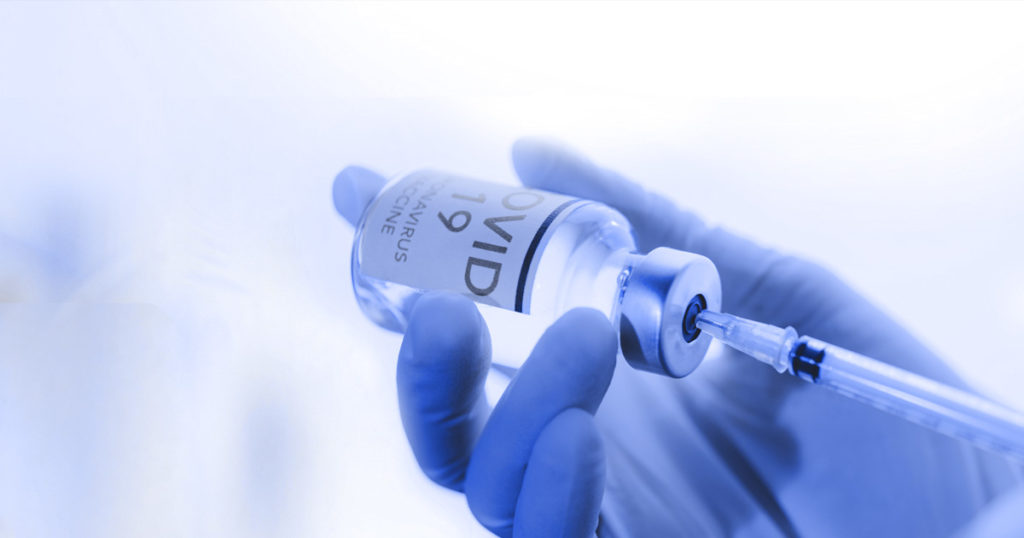
New variants of COVID-19 are causing global concern. Mutations in the viral genome can affect its transmissibility and pathogenicity, and structural changes to the spike protein could reduce the effectiveness of some of the vaccines that are being distributed in several countries. A new preprint available on bioRxiv suggests that the COVID-19 variant B.1.1.7, which was first documented in the United Kingdom, is still susceptible to the neutralizing antibodies produced in response to several vaccines, including the Moderna mRNA-1273 and the Novavax NVX-CoV2373.
What is B.1.1.7?
If a virus can’t replicate, it can’t mutate. Mutations occur when mistakes are made in RNA replication. In contrast, when a virus spreads uncontrollably, the frequent replication increases the chances that mutations will occur. It’s no surprise that with over 100 million cases worldwide, representing an unfathomable amount of replication, COVID-19 has sprouted new variants in several parts of the world. The accumulated mutations in these variants can alter key properties.
B.1.1.7 is a variant of the SARS-CoV-2 virus that originated in the UK. It has an alarmingly high transmission rate – even higher than the D614G variant that is responsible for most infections worldwide. B.1.1.7 has 17 noteworthy mutations, but three of them affecting the spike protein are particularly concerning. The spike protein is responsible for giving the virus access to the interior of host cells. Most of the vaccines currently being tested or distributed are based on the spike protein of D614G. If the mutations cause significant changes to the spike protein, the antibodies elicited by the vaccine may not be as effective at neutralizing the pathogen.
Study: Neutralization of B.1.1.7 Using Pseudotyped Viruses
In a preprint available on bioRxiv, a team led by researchers at Duke University investigated whether the immunity produced by emerging vaccines would provide protection from the COVID-19 variant B.1.1.7.
The researchers developed a neutralization assay that used lentiviral particles displaying the SARS-CoV-2 spike protein and a firefly luciferase reporter gene. They tested sera from individuals who had received either the Moderna mRNA-1273 vaccine, which has been given Emergency Use Authorization by the FDA, and the Novavax NVX-CoV2373, which is currently in Phase 3 trials. They also included convalescent sera, which came from individuals who recovered from a previous COVID-19 infection.
All vaccine sera successfully neutralized the B.1.1.7 variant of SARS-CoV-2. However, all sera tested in the study showed reduced activity against B.1.1.7, including the convalescent sera.
To investigate the cause of this reduction, the researchers next tested each mutation of the spike protein individually and in pairs. Interestingly, they found that the ΔH69-V70 mutation made the virus more susceptible to the Moderna vaccine. ΔH69-V70 is a deletion of two amino acids in the N-terminal domain (NTD) of the spike. When ΔH69-V70 was tested in combination with Y453F, a substitution in the receptor-binding domain (RBD), the increased susceptibility of the NTD deletion was reversed by the inclusion of the RBD substitution. This suggests that interactions between the NTD and RBD are responsible for the decreased susceptibility when mutations are present in both.
Are Vaccines Effective Against B.1.1.7?
The authors of the bioRxiv study concluded that B.1.1.7 is not a neutralization escape variant, and that the two types of vaccines they tested are both effective against the variant. They also pointed out that the modest reduction in susceptibility is outweighed by the 10-fold increase in immune response shown by people who have received two doses of the vaccine.
As long as the virus spreads, there will be plenty of opportunity for new variants to emerge. Slowing the spread of COVID-19 is the best strategy to reduce the risk of encountering variants that will escape the immunity elicited by current vaccines.
The study described above used the GloMax® Navigator Microplate Luminometer to measure luminescence during the production of pseudotyped viruses and the neutralization assay. To learn more about this instrument and explore related application notes, click here.
Reference:
Shen, X. et al. 2021. SARS-CoV-2 variant B.1.1.7 is susceptible to neutralizing antibodies elicited by ancestral Spike vaccines. bioRxiv doi: 10.1101/2021.01.27.428516
Latest posts by Jordan Villanueva (see all)
- Academic Access to Cutting-Edge Tools Fuels Macular Degeneration Discovery - December 3, 2024
- Novel Promega Enzyme Tackles Biggest Challenge in DNA Forensics - November 7, 2024
- Promega Summer Interns Contribute Skills and Ideas from Logistics to R&D - September 10, 2024

SARS-CoV-2 variant B.1.1.7 this is not only one another variant of corona there are 2 more variants found in UK and Brazil…..
https://dewwool.com/